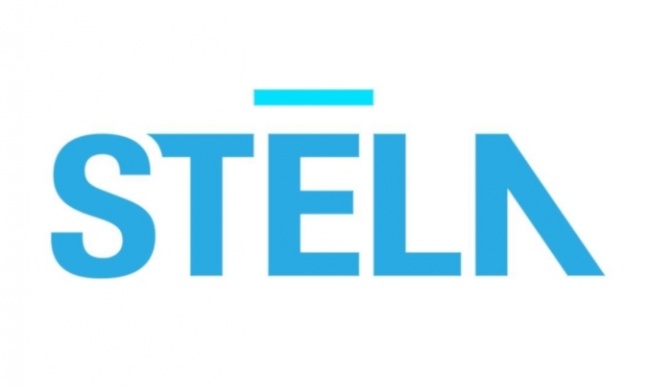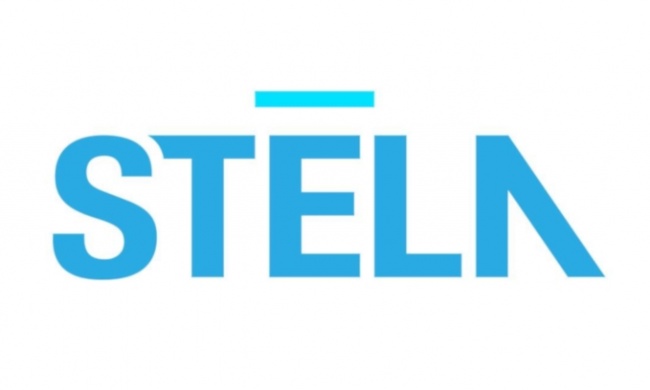It seems clear that if there is a market for original digital comics, it starts with reaching Generation M (mobile) and getting them to devote some of the 4-5 hours per day that device-addicts spend swiping and scrolling on their phones to the laudable endeavor of reading comics. A couple of companies including Line Webtoon and Tapas have been trying to crack this with app-based platforms and variations on "freemium" pricing (first few episodes free, then pay to download), and some individual creators develop their own series for this audience, but surprisingly few companies are approaching this in a systematic way.
One relatively new entrant to this space is trying something a little bit different. Stela, based in Lynnwood, Washington, launched three years ago and has been slowly adding to its online inventory of adventure, fantasy, science fiction, romance and literary graphic stories using all original content and a relatively steep subscription cost of $9.99/month. The site recently topped 100,000 pages of content available and claims 15,000 active subscribers (and 200,000 app downloads since launch).
A new approach. Unlike others in the space, Stela does not bulk up its catalog with backlist from Asian partners or publishers, does not use its platform to try to develop talented amateur creators into saleable professionals, and has decided not to work with freelance creators. Instead, all of Stela’s material is produced by a paid fulltime staff of about 30 writers and artists operating in a studio environment. Their material aims for the same readership as certain kinds of manga, but is produced by US creators primarily for American audiences, with no foreign partners involved as of now.
"At first, we worked with outside creators like Joe Casey, Brian Wood and Ron Wimberly," said Stela co-founder and CEO Jason Juan. "But, for whatever reason, that material did not perform well digitally on our app. It was not bringing in paid users. We found that our in-house stories were doing better – like five times better – than material developed outside, so we opted to go with that approach."
Juan, an award-winning artist and visual designer with experience in entertainment and videogame design, says he is looking to create a Pixar-style approach with comics, using experienced professionals from illustration, character design, animation and other disciplines to create stories with high production value as well as diverse storytelling approaches.
"We put a lot of movie production process into the product," said Juan. "We have a full team break down the story, study the mood. We have in-house writers and artists; that’s why we need them."
Juan says Stela’s team currently produces about 15 pages of new content per week on 4-5 ongoing series, plus a small amount of licensed content on legacy series. That’s about 2.5 story chunks of 6-8 pages. Juan says they need to double that output to sustain current levels of growth. He also acknowledged that scalability will become an issue eventually, but it sounds like a problem he’d be happy to have.
Queer girls are Stela’s sweet spot. So far, Stela has developed 40 titles exclusively on its platform. "Some are indy style, some are mature theme, some are all-ages," said Juan. After experimenting for a while, Juan says Stele discovered its audience.
"Younger females are the main audience, but within that, we appeal heavily to LGBTQ, particularly lesbian," he said. "We have lately been trying to secure genres and titles for that readership. We want to keep a variety and range to keep new readers coming in."
Juan said that when the company exhibited at its first convention – Emerald City Comic Con in March – he was surprised to see a new segment displaying interest. "We got a lot of inquiries from teachers and librarians about this content," he said. "That was not what I expected. I had to ask myself, can we give Stela to students or to younger kids? Half our content is kid-safe, but half is for more mature readers. Our app is rated for Teen."
Nevertheless, for a company still experimenting to find its voice and its fanbase, Juan sounds will to consider all possible solutions.
Premium quality, premium price. As to that $9.99 price point – higher than comiXology Unlimited, DC Universe or Marvel Unlimited, and way more than Shonen Jump charges for access to its vast inventory of popular manga – Juan says it has not really been an issue.
"We started at $4.99, thought about cutting the price, but decided to raise the price instead, and our subscription rate did not change," said Juan. "Because we’re doing fully professional, exclusive, original content curated for them, our readers still feel like they are getting a ton of value. We could probably raise it up even more, because it’s really about product fit. If passionate fans like your product, they will pay."
So far, Stela has not invested much in customer acquisition, using Facebook as its only real marketing platform. "We use data science to target prospective customers, like most companies in the market," Juan said. "We are only on Facebook at the moment, because that’s really the only thing we can do at our current size."
Same tune, different key. Like many new comic publishers, Juan says the real hope for his business, and the industry as a whole, is to expand the overall audience for comics. He quotes often-cited statistics about the shriveled size of the US comic market relative to Japan or Europe, and the familiar issues of trying to bring new readers in through channels outside the direct market, such as mobile and digital.
"People have been trying this and failing," he acknowledges. "We wanted to try one more time because the mobile industry is the real opportunity. Everyone is holding a phone. Everybody wants content that’s easy to consume on that device."
Stela is privately-held and does not disclose financial results, but Juan offered that financial performance so far is meeting his expectations. "Certain titles are profitable, although the company as a whole is still a long way from profitability," he said. "But we can get there."
The opinions expressed in this column are solely those of the writer, and do not necessarily reflect the views of the editorial staff of ICv2.com.
Rob Salkowitz (@robsalk) is the author of Comic-Con and the Business of Pop Culture.

Column by Rob Salkowitz
Posted by Rob Salkowitz on May 7, 2019 @ 12:47 am CT




